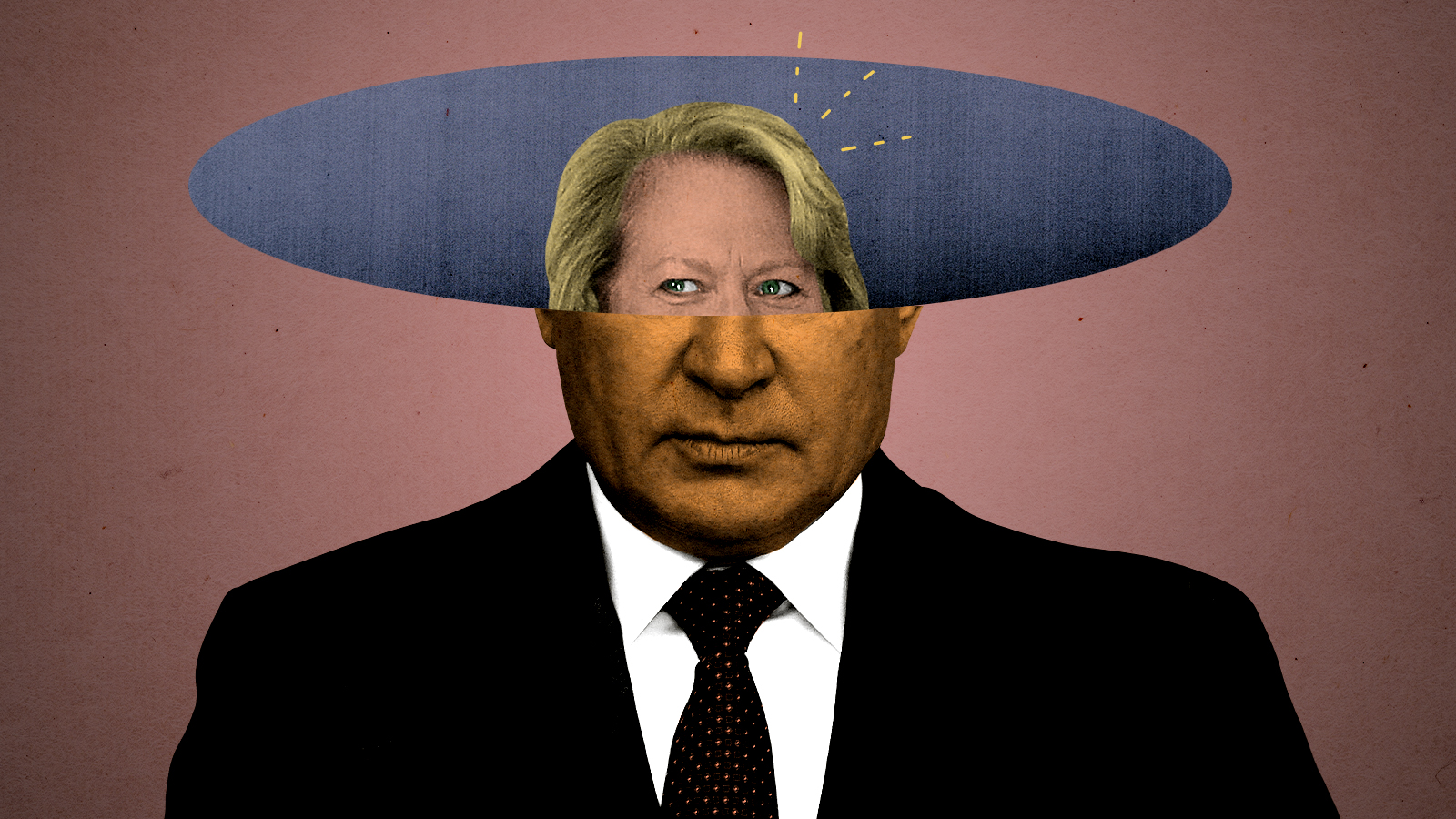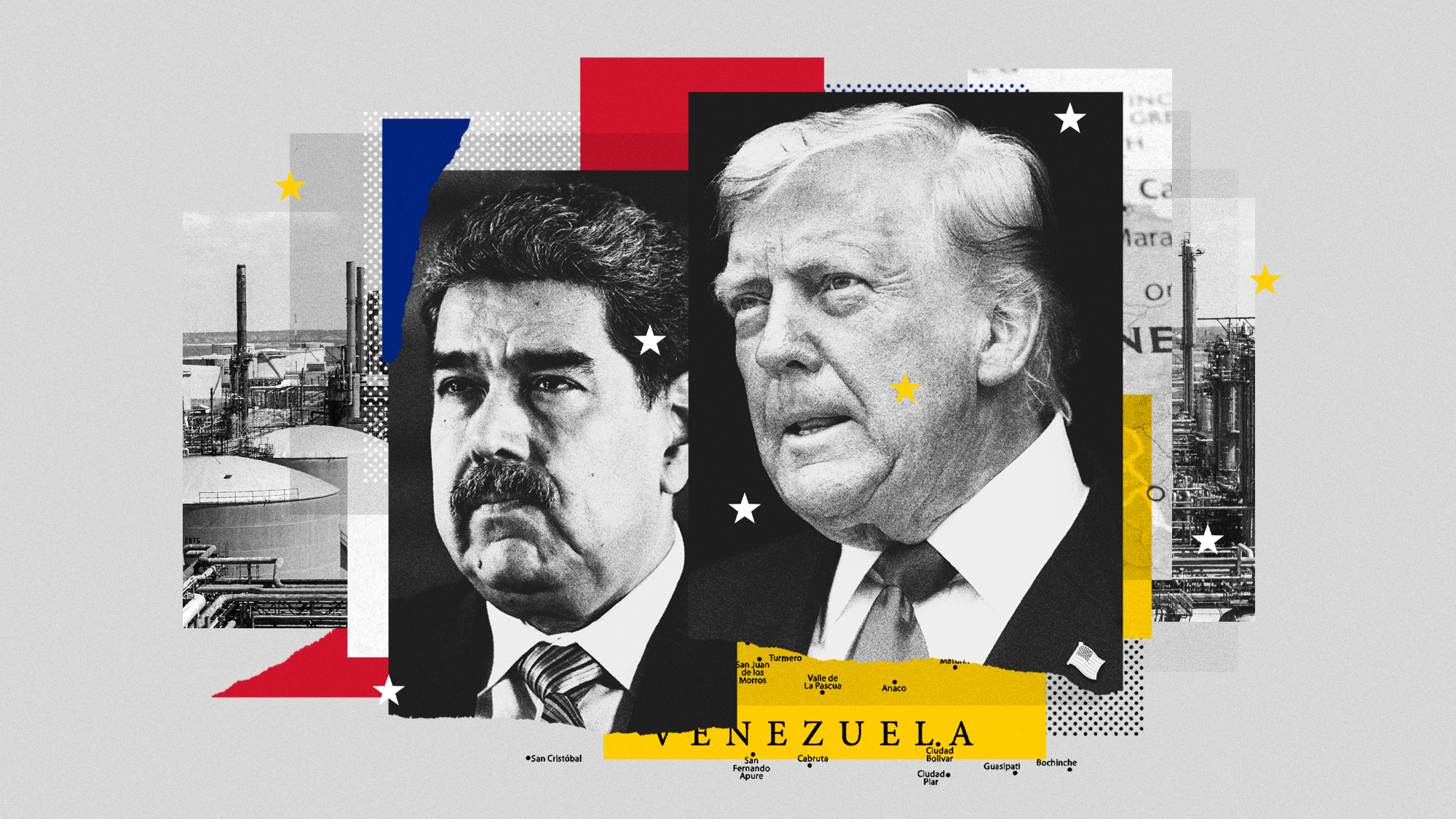What Ginni Thomas and Vladimir Putin have in common


A free daily email with the biggest news stories of the day – and the best features from TheWeek.com
You are now subscribed
Your newsletter sign-up was successful
You know what Ginni Thomas and Vladimir Putin have in common? They are both sealed inside information bubbles of their own making, to disastrous ends.
Let's start with Putin. Russia's invasion of Ukraine has gone badly, but why? Brian Klaas, a politics professor at University College London, says Putin blundered into the war because he didn't have anyone around to tell him what he believed — that Ukrainians don't really have their own national identity, that the invasion would be a cakewalk — might not actually be true. Klaas calls this the "dictator trap."
"It's what happens when authoritarian leaders make catastrophic short-term errors because they start to believe in the fake realities they've constructed around themselves," Klaas said this week in an interview with Vox.
The Week
Escape your echo chamber. Get the facts behind the news, plus analysis from multiple perspectives.

Sign up for The Week's Free Newsletters
From our morning news briefing to a weekly Good News Newsletter, get the best of The Week delivered directly to your inbox.
From our morning news briefing to a weekly Good News Newsletter, get the best of The Week delivered directly to your inbox.
Maybe that sounds familiar. Echo chambers don't just happen to dictators. Nowadays, thanks to social media and tailored TV channels, anyone can enjoy their own fake reality.
Take Thomas, a powerful conservative activist and wife of Supreme Court Justice Clarence Thomas. The Washington Post reported Thursday on texts she sent to Mark Meadows, Donald Trump's chief of staff, around the time of the Jan. 6 insurrection, urging him to help Trump "stand firm" in efforts to overturn the 2020 election.
Strikingly, the texts suggest Thomas really believed some of the outlandish right-wing conspiracy theories pushed by Trump and his allies. Here's a text she sent Meadows, quoting one of those theories:
Biden crime family & ballot fraud co-conspirators (elected officials, bureaucrats, social media censorship mongers, fake stream media reporters, etc) are being arrested & detained for ballot fraud right now & over coming days, & will be living in barges off GITMO to face military tribunals for sedition.
That obviously never happened. It's not just wrong, it's nutty. Ginni Thomas, with connections at the highest levels of government, should've known better. But like a lot of people who also attended the "Stop the Steal" rally on Jan. 6, it seems she bought whatever right-wing websites were selling, no matter how far from reality. Contradictory facts and ideas — the truth that Joe Biden won — were filtered out.
A free daily email with the biggest news stories of the day – and the best features from TheWeek.com
Klaas thinks democracies are less susceptible to the dictator trap. Trump, he notes, obsessively watched CNN and MSNBC to see what people were thinking about him. But I'm not so sure that's right. After all, it's not been so long since American news organizations of all stripes — Fox News and the New York Times — coalesced around the shoddy case for a disastrous war. The Thomas texts suggest that even in today's more-fractured and diverse media environment, it's pretty easy to avoid disfavored voices and facts. And whether the information bubble is contained to one man or a large group of people, it can still have nasty consquences.
The tendency to believe only the facts we want to believe is a longstanding human foible. Not even society's elites are immune. You don't need to be a dictator to fall into the dictator trap.
Joel Mathis is a writer with 30 years of newspaper and online journalism experience. His work also regularly appears in National Geographic and The Kansas City Star. His awards include best online commentary at the Online News Association and (twice) at the City and Regional Magazine Association.
-
 Local elections 2026: where are they and who is expected to win?
Local elections 2026: where are they and who is expected to win?The Explainer Labour is braced for heavy losses and U-turn on postponing some council elections hasn’t helped the party’s prospects
-
 6 of the world’s most accessible destinations
6 of the world’s most accessible destinationsThe Week Recommends Experience all of Berlin, Singapore and Sydney
-
 How the FCC’s ‘equal time’ rule works
How the FCC’s ‘equal time’ rule worksIn the Spotlight The law is at the heart of the Colbert-CBS conflict
-
 ‘The forces he united still shape the Democratic Party’
‘The forces he united still shape the Democratic Party’Instant Opinion Opinion, comment and editorials of the day
-
 Trump’s ‘Board of Peace’ comes into confounding focus
Trump’s ‘Board of Peace’ comes into confounding focusIn the Spotlight What began as a plan to redevelop the Gaza Strip is quickly emerging as a new lever of global power for a president intent on upending the standing world order
-
 The billionaires’ wealth tax: a catastrophe for California?
The billionaires’ wealth tax: a catastrophe for California?Talking Point Peter Thiel and Larry Page preparing to change state residency
-
 Trump considers giving Ukraine a security guarantee
Trump considers giving Ukraine a security guaranteeTalking Points Zelenskyy says it is a requirement for peace. Will Putin go along?
-
 Vance’s ‘next move will reveal whether the conservative movement can move past Trump’
Vance’s ‘next move will reveal whether the conservative movement can move past Trump’Instant Opinion Opinion, comment and editorials of the day
-
 What have Trump’s Mar-a-Lago summits achieved?
What have Trump’s Mar-a-Lago summits achieved?Today’s big question Zelenskyy and Netanyahu meet the president in his Palm Beach ‘Winter White House’
-
 Bari Weiss’ ‘60 Minutes’ scandal is about more than one report
Bari Weiss’ ‘60 Minutes’ scandal is about more than one reportIN THE SPOTLIGHT By blocking an approved segment on a controversial prison holding US deportees in El Salvador, the editor-in-chief of CBS News has become the main story
-
 Why, really, is Trump going after Venezuela?
Why, really, is Trump going after Venezuela?Talking Points It might be oil, rare minerals or Putin
